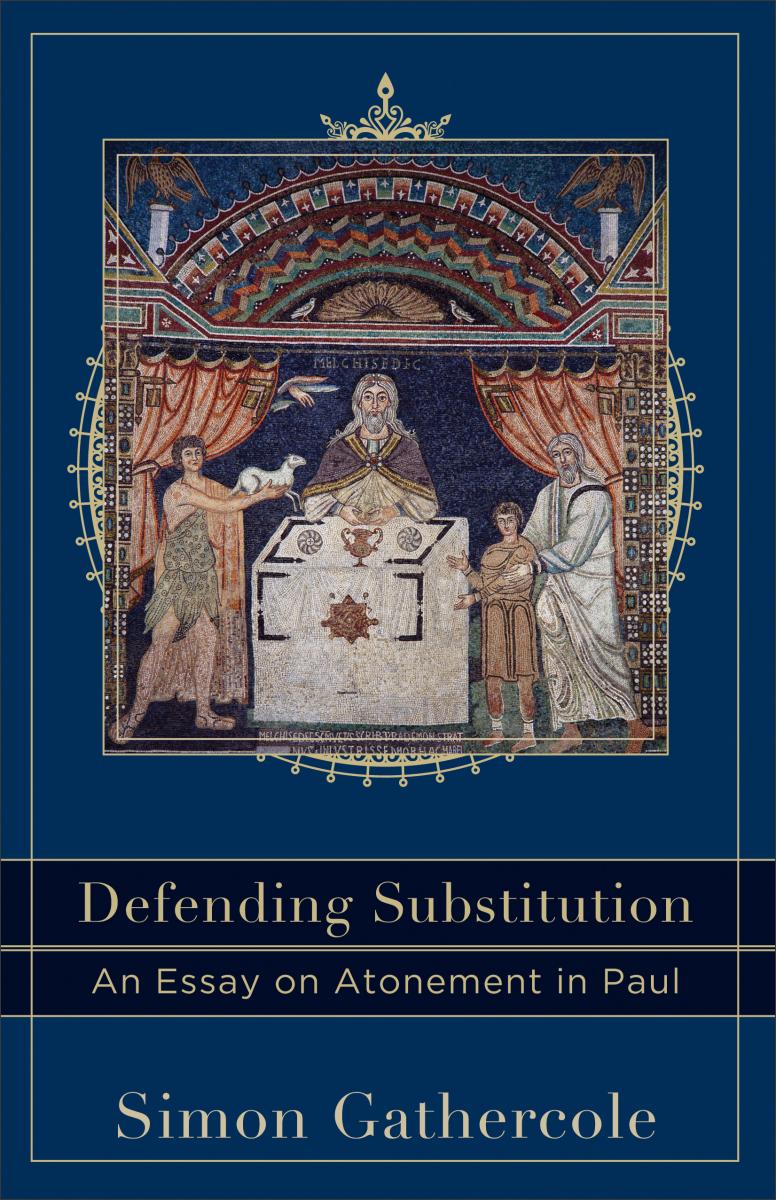 By Simon Gathercole. Baker Academic. Pp. 128. $19.99 |
Review by Fleming Rutledge
It may or may not come as a surprise to some readers of The Living Church to know that the simple statement, “Jesus Christ died in my place for my sins,” might bring down the wrath of the academic community upon the unsuspecting head of a simple believer. Widespread antagonism to the theme of substitution as an explanation of what happened on Golgotha has had markedly deleterious effects on preaching and teaching in churches. The stuffing has been knocked out of the Good Friday message. Preachers do not know what to say about the cross of Christ.
Simon Gathercole, senior lecturer in New Testament at the University of Cambridge, argues that the substitution motif must be allowed a prominent place alongside other important biblical themes such as representation, interchange, and deliverance. His presentation is scholarly, so this little book is not for everyone, but he has something very important to say to preachers and, by extension, to those who hear sermons.
Gathercole’s proposal focuses on two passages in Paul’s letters. The first is 1 Corinthians 15:3. In Paul’s preaching to that congregation, what was it that was “of first importance”? What does Paul have in mind when he says that “Christ died for our sins in accordance with the scriptures”? In reflecting on this, Gathercole draws out the relationship between the death of Christ and the Suffering Servant of Isaiah 53. Although direct quotations from Isaiah 53 are rare in the New Testament, Gathercole argues that the text is front and center in Paul’s mind when he writes “in accordance with the Scriptures.” This insight confirms and deepens the Church’s long-hallowed link between Isaiah 53 and the Good Friday liturgy.
The second passage is Romans 5:6-8. Gathercole, who was a classics scholar before he received his doctorate in New Testament, demonstrates that verse 5 is not simply a parenthetical sidetrack, but features Paul drawing on the idea of substitutionary death in classical literature and philosophy in order to make a contrast. There is precedent in Greek and Hellenistic culture for one person to die in place of another (he cites Alcestis in particular), but always for a worthy cause or worthy person. It would have been inconceivable in Greco-Roman eyes to give up one’s life in place of an unworthy or impious person. Therefore, when Paul says that Christ dies “for the ungodly,” he is fully aware of the shocking effect of such a statement. Although Gathercole does not linger over the theological riches of this point, it clearly has powerful implications.
In a well-designed summary at the end, Gathercole brings together his various detailed arguments in a robust affirmation of the theme of substitution: Jesus died not only on our behalf but in our place, as an essential aspect of the apostolic gospel. Gathercole repeatedly affirms other motifs, particularly representation and participation, but insists that no one theme should crowd out others. Indeed, the ending of his book makes this point with exceptional verve!
I offer two thoughts as a representative of the apocalyptic school of interpretation. I don’t think Gathercole sufficiently grasps the distinction between Paul’s concept of justification and mere forgiveness; nor, in his concern to show that Paul speaks of sins as well as Sin, does Gathercole seem to appreciate the importance of Sin understood as an enslaving power. But these are matters for a different conversation.
Gathercole is an interpreter to be reckoned with. He is fluent in classical as well as koine Greek. He is obviously abreast of recent scholarship in the German language, not always true of English-speaking academics. Best of all, he obviously cares about the ordinary Christian in the pew. At the outset of his book he quotes Simeon Zahl, an American now teaching at Oxford whose name will be familiar to many TLC readers: “The vehemence of the reactions against substitutionary … models over the centuries has often obscured recognition of their sheer effectiveness in a wide variety of contexts and over many centuries.” Gathercole, an elder in a Baptist congregation in Cambridge, obviously knows something about the power of the message that Christ died in our place so that we would be delivered from our sins and from eternal death.
The Rev. Fleming Rutledge is author, most recently, of The Crucifixion: Understanding the Death of Jesus Christ (Eerdmans, 2015).









